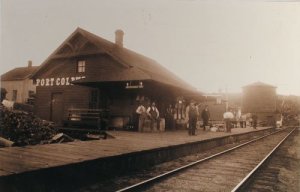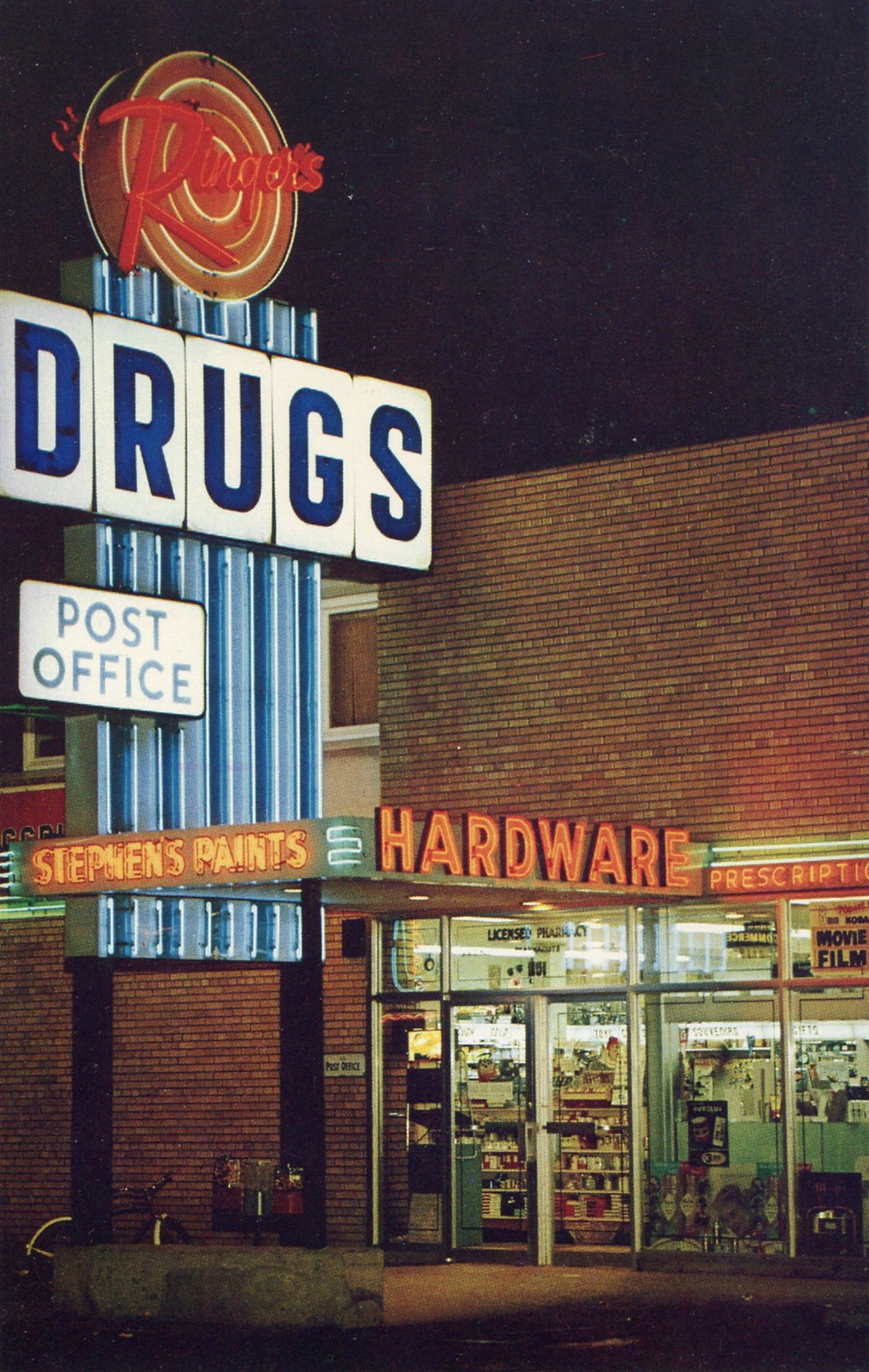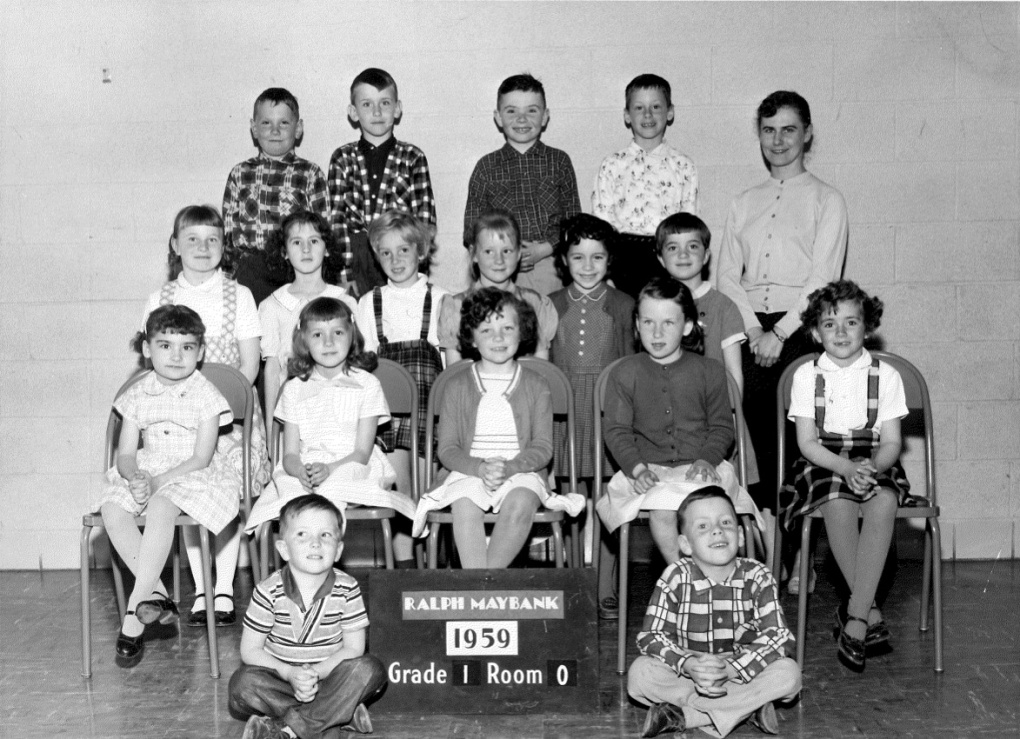I try in these pages not to slip into plain old nostalgia. It’s too easy and too common: everyone has a decade or so in their past during which the world was a better place than it is now, and already our children are beginning to come over all sentimental about the 1990s, which as far as I’m concerned are still the present. It follows, then, that the world of the past was, is, and always will be better than the world at hand, and that nostalgia, though great fun, is too highly personal to be truly meaningful. So I stick with the Three Ems: memory, meaning—where there is any— and now and then, murder.
Just last year I found that I had a long lost great-great uncle, Edward Hewitt, who’d been edited out of our family history. Perhaps he was already considered a prodigal son when, having left the family seat in Simcoe County, he decided to stop in Winnipegland—as any sane person would—and work for the Canadian Pacific here and in Coldwell, rather than continue west to farm in Saskatchewan with his brothers. As well as his bunk in the company dorm out back of Port Coldwell Station, Ed kept a Winnipeg bolthole by Sturgeon Creek in the then semi-rural St James. I’d like to think his digs were more salubrious than the trio of blue dumpsters now occupying the site. but the more I get to know Uncle Ed, the less I’m surprised by any bad news about him. Certainly his life was sufficiently unsavoury to have ended unsurprisingly at the hands of a still unidentified murderer, on the shore of Echo Lake. Here is the Winnipeg Tribune report published the Tuesday after the killing:
POLICE SUSPECT FOUL PLAY IN LAKEHEAD DEATH: Man Found Dead in Port Arthur With Pockets Rifled Thought Slain
PORT ARTHUR, Ont Sept 8, 1925. Under circumstances indicating murder, the body of Edward Hewitt; aged about 60 years, 10 years in the employ of the Canadian Pacific Railway as rock-cut watchman with headquarters at Port Coldwell. was found on the shore of Echo Lake, 30 feet below the railway track, about 7 o’clock Saturday evening. A wound giving every appearance of having been inflicted by a blunt instrument, was on the right temple. A roll of bills, said to have aggregated about $1000, which Hewitt was known to have carried on his person, was missing. The provincial police are investigating and an arrest is expected.
Well, there was no arrest, nor any further reportage, so I’ve been doing some research in order to reconstruct some of the detail of Uncle Edward’s life and death, and to bring him, if not back to life, then at least back into the family which has forsaken him for nearly a century.

A rock cut like the one where Edward Hewitt protected slow-moving trains from falling rocks, freeloading rod-riders and larcenous leapers.
As a rock-cut watchman, Edward helped protect the trains which moved by necessity at a snail’s pace along a pretty dodgy section of track. Eastbound trains carried his brothers’ Saskatchewan rye to Ontario and Québec, but Edward chose to take his share of the harvest in its tastier and more lucrative distilled form on the return journey west. The disappearance of a bottle or two here and there—maybe even the occasional case—was par for the course on that long haul, and minor shortages at the Winnipeg railhead were only rarely investigated by railway police. But Uncle Ed got stars in his eyes when a CPR colleague told him he knew a guy with a boat who could sell as much hard liquor as he could get to another guy who lived on Isle Royale, Michigan, just fifteen miles off the Lake Superior shore and five miles inside the thirsty, jitterbugging, prohibition-stricken USA.
Edward started increasing his “harvest”, and week by week the summer of 1925 he amassed a marketable surplus he hid in the narrow strip of woods between tiny Echo Lake and the mighty Superior, which is bisected by the US border. The first shipment of twenty cases went without a hitch in the wee small hours of Thursday September 3rd. The $1800 take was split three ways by Ed, his CPR crony who had expertly altered the manifests and unlocked the freight-car doors, and the guy with the boat.
So far, so good, but Ed was now infected with greed and the next night, the start of the weekend, he headed into Port Arthur in search of a big-stakes poker game. He found one, and whisky-addled though he was, he managed to turn his $600 into just over a grand, running out of less lavishly bankrolled opponents one by one till the game broke up. He managed to stagger to the station just in time to hitch a ride home in the caboose of the midnight train to Coldwell. Alone, he thought, but no such luck. He didn’t disembark at Port Coldwell Station. Strictly speaking he didn’t disembark at all, but was bashed on the head and thrown off the train a few miles south of Coldwell, just a stone’s throw away from his Echo Lake stash, where the trains always slowed to a crawl. His $1000 wad was gone, but it didn’t matter, because Ed was dead.
By virtue of his day job, Uncle Ed was bound to have been a tough guy, perhaps not bad to the bone, but certainly no angel. The local police were probably happy enough to let him and his type kill each other off, and it’s clear the “investigating” was neither lengthy nor dogged. Had the Mounties been brought in they would doubtless have “got their man”, but it was not their jurisdiction.
I stand to be corrected on any of this, and would love to know more, but that would require one or more of the killer’s descendants to come forward; I won’t be holding my breath. So this, for the time being, is Edward Hewitt’s story. Sure, it’s not the whole story, but it’s the only one he’s got, and a damn sight more than his family has allowed to be told thus far.
It’s a little nephew’s little gift to you, bad Uncle Ed. Welcome home.






